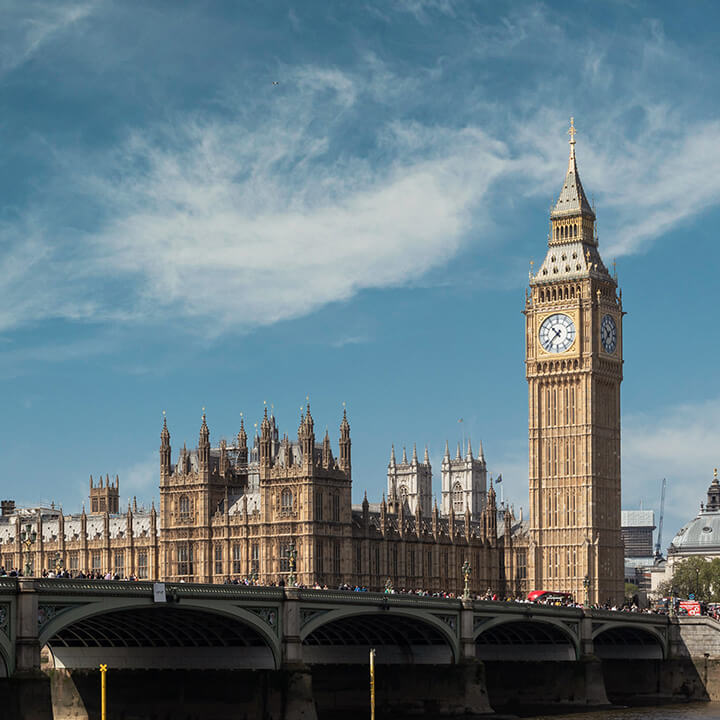King’s Speech July 2024: Your “need to know”
18th July 2024
“The new Labour government has been clear that it plans to use its mandate for change to put economic growth and stability at the heart of its legislative agenda. The King’s Speech on 17 July echoed those promises, announcing some 40 bills, including plans to prioritise: wealth creation for all, clean energy security, infrastructure and development and modernisation of the constitution. In this article, we highlight some of the key developments of interest for UK businesses.”


The new Labour government has said it will grow the economy through “turbocharging” housebuilding, infrastructure, clean energy, transport, and more. In this article, Walker Morris’ Planning & Environment, Infrastructure & Energy and Employment & Immigration specialists look at the legislative agenda promised in the King’s Speech and highlight the ‘need to know’ for UK businesses.
Planning and housing
A major tenet of Labour’s overarching aim to secure economic growth is to “get Britain building”. The King’s Speech announced the Planning and Infrastructure Bill, which is intended to speed up and streamline the planning process to build more homes of all tenures, and to accelerate the delivery of major infrastructure projects in alignment with industrial, energy, and transport strategies. Key planning and housing reforms within and alongside the Bill are likely to include:
- Restoration of mandatory housing targets.
- Updating of the National Planning Policy Framework.
- Focusing on a more strategic approach to planning, which includes a strengthening of the presumption in favour of sustainable development, greenbelt review, and prioritising brownfield (and potentially ‘grey belt’) development.
- Modernisation of planning committees and improving capacity through the funding of additional planning officers.
- Maintaining nutrient neutrality rules and focusing on nature recovery, to facilitate development without eroding environmental protections.
- Reform of compulsory purchase compensation rules to help unlock more sites for development.
- It’s possible that enhanced devolution legislation, including the announced English Devolution Bill, will support the ability of local leaders and communities to deliver on local neighbourhood, high street and community asset transformation.
- Implementation of greater rights for tenants, including a ban on so-called no-fault evictions, enhanced building safety rules for social tenants (known as Awaab’s Law) and leasehold and commonhold reform.
“These changes should go a long way to address several previous retrograde steps in the last government’s approach to development. The key will be how they are delivered in actual decision making by local authorities, who often have different agendas to the national government.”
– Richard Sagar, Partner, Planning & Environment

For more information regarding the government’s planning proposals, see our recent article, Planning for the future: General Election 2024.
Infrastructure & Energy
The King’s Speech made clear that the government is committed to a clean energy transition and to securing energy independence. Various bills and measures will be introduced to help achieve those goals. Key proposals include:
- Creation of a new Industrial Strategy Council and investment in cleaner, cheaper British energy.
- Creation of Great British Energy (GBE), a publicly owned clean energy company, to be headquartered in Scotland. GBE will help accelerate investment in renewable energies, such as offshore wind and will support the government’s aim to base the electricity system on clean energy by 2030.
- Launch of the National Wealth Fund (NWF), including £7.3bn investment in new industries and technologies to support growth and clean energy missions. The NWF will also target three pounds of private investment for every one pound of public investment.
- Measures and infrastructure to double current onshore wind capacity, and achieve a three to fourfold increase in current offshore wind and solar capacity by 2030, and investment in carbon capture and storage.
- Introduction of rail reform legislation – in particular to reform rail franchising and bring train operations into public ownership.
The government has already announced immediate reversal of the ‘de facto ban’ on onshore wind, to put it on the same footing as other energy development from a planning perspective.
Find out more in our recent article, A return to onshore wind.
On the announcement of the National Wealth Fund, Ben Sheppard, Partner in our Infrastructure & Energy team commented:
“The National Wealth Fund is an opportunity to attract much-needed private investment into priority net-zero projects. We can expect to see the fund used to accelerate deployment of carbon capture technologies and green hydrogen manufacturing, using the demand support mechanisms established under the Energy Act 2023.
“British ports will benefit from £1.8bn to be invested in upgrading port infrastructure and the deployment of offshore windfarms. Alongside planning reform, Labour’s objectives are to double onshore wind, triple solar panels, and quadruple offshore wind by 2030 — we look forward to an exciting time for infrastructure and energy projects.”

– Ben Sheppard, Partner, Infrastructure & Energy
People
Ambitious plans under a Labour government will always need to be supported by a focus on workers’ rights, so many of the employment law reforms addressed in the King’s Speech will come as no surprise. These include:
- Introduction of a ‘new deal for working people’ in the form of the Employment Rights Bill. Key aspects for UK employers will be the banning of zero-hour contracts and fire and re-hire/fire and replace practices; making parental leave, sick pay and protection from unfair dismissal available from ‘day 1’ on the job for all workers; and strengthening Statutory Sick Pay by removing the lower earnings limit to make it available to all workers.
- Strengthening flexibility, work-life balance and family-friendly policies and rights.
- Ensuring equal pay for ethnic minorities and disabled workers.
- Introduction of a new Single Enforcement Body/Fair Work Agency to strengthen enforcement of workplace rights.
- Updating trade union legislation.
- Delivery of a genuine living wage that accounts for the cost of living and removal of discriminatory age bands to ensure every adult worker benefits.
- Establishment of Skills England to bring together businesses, providers, unions, Mayoral Combined Authorities and national government to ensure a highly trained workforce. The Skills England Bill will also reform the apprenticeship levy.
- Alongside employment law reforms, the government’s stated focus on bringing recognition and care for mental health in line with that of physical health, and its wider scale aims to improve education and break down barriers to opportunity are likely to impact employers and the workforce in the longer term.
We’ll be providing a in-depth review of the changes to employment law in the coming days, so keep your eyes peeled.
“Labour’s manifesto was fully committed to introducing legislation within 100 days of taking power – and this has been confirmed by plans laid out in the King’s Speech. Key plans intended to deliver ‘real change that transforms lives’ include strengthening individual rights with a genuine living wage, removing exploitative zero-hours contracts and fire and re-hire practices. Employers will inevitably need to prepare for employment becoming more costly, but Labour has promised to help businesses alongside these plans.”
Explore our in-depth review of changes to employment law here.
– Lucy Gordon, Partner, Employment & Immigration

For additional commentary from our Employment team on Labour’s proposed employment reforms, see our articleWhat Labour’s election victory may mean for employers and our video digest on Labour’s proposed employment reforms.
Other key legislative changes
Whilst an anticipated Artificial Intelligence Bill was left out of the King’s Speech, there was a clear indication that legislation placing requirements on the developers of the most powerful AI models is coming down the track. And whilst there was no announcement of wholesale data protection reform, we can expect “targeted reforms to some data laws that will maintain high standards of protection but where there is currently a lack of clarity impeding the safe development and deployment of some new technologies”. The devil will be in the detail.
Other announced measures which are, either directly or indirectly, likely to have a significant impact on many UK businesses and on the UK’s commercial reputation internationally include:
- Strengthening of the role of the Office for Budget Responsibility (OBR) to ensure every fiscal event making significant changes to taxation or spending is subject to the scrutiny of an independent OBR forecast.
- Introduction of a duty of candour for public servants.
- The government’s stated intention to “reset the relationship with European partners and work to improve the United Kingdom’s trade and investment relationship with the European Union”, albeit as yet we have no detail as to what that might involve.
- Introduction of ‘Martyn’s Law’ – that is, a protection of premises law, proposed in the wake of the Manchester Arena bombing, which aims to strengthen security measures in public venues across the UK. (As well as concert halls, stadiums, and other crowded spaces, the implications of Martyn’s Law will extend to other publicly accessible venues and events, including hospitals, large care homes, shops, leisure, education and transport facilities, and more.)
- A Cyber Security and Resilience Bill to include mandating increased incident reporting to give government better data on cyber attacks, including where a company has been held to ransom. This will expand the type and nature of incidents that regulated entities will need to report.
- Modernisation of the constitution, including reform of the House of Lords, removal of hereditary peers and the driving up of standards in the House of Commons.
In conclusion…
Sir Kier Starmer has promised “national renewal”, and wealth creation in every corner of the UK. In the King’s Speech, ambitious commitments to tackle long-standing issues like housing shortages and planning barriers sit alongside aspirations to drive innovation and clean energy security, and to ensure worker and people protections, as well as fiscal responsibility.
With 40 bills announced already, and with further proposals and more detail to follow, UK business can expect sweeping changes in the weeks and months to come. Walker Morris’ legal and sector-focused specialists will monitor and report on key developments.
For commercially focused, practical advice, support or training on any of the matters addressed in the King’s Speech, please contact us.







